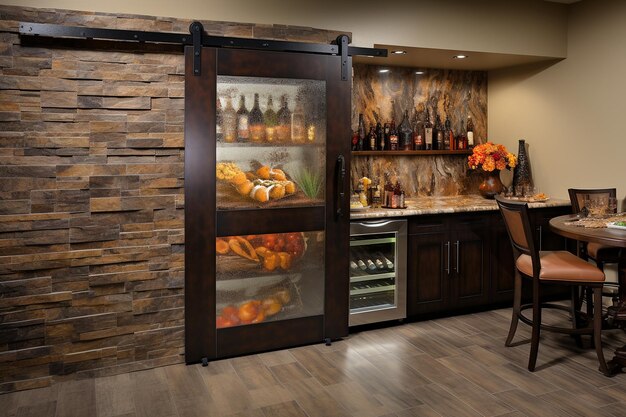The Evolution of the Refrigerator: Tracing Its Cool Beginnings
In today’s world, refrigerators are an indispensable part of our daily lives, preserving our food and keeping it fresh for longer periods. But have you ever wondered when was the first refrigerator made? Understanding the development of the refrigerator provides insights into how technology has advanced and changed the way we live. Let’s explore this fascinating journey from the earliest cooling methods to the modern refrigerator.
❄️ Origins of Food Preservation: Before Refrigerators
Before the invention of the refrigerator, ancient civilizations used various methods to keep food fresh. These techniques offer us a glimpse into the creativity and resourcefulness of early societies.
Natural Cooling Methods
Ice and Snow: Ancient people living in colder climates often stored their food in ice. This method required significant effort in collecting and storing enough ice or snow throughout the year.
Cellars and Caves: Underground storage in cellars or caves maintained a consistently low temperature, utilizing the natural insulation of the earth to prevent spoilage.
Evaporative Cooling: Using the principles similar to modern swamp coolers, cultures in hot climates would use porous pots filled with water. The evaporation of water would cool the inside, albeit not as effectively as ice.
Salting and Smoking
Preservation methods such as salting, which involves packing meat or fish in salt to draw out moisture, and smoking, which incorporates the use of smoke to dry and flavor food, were fundamental to food storage long before the refrigerator.
🔧 The Advent of Refrigeration Technology
The journey to the modern refrigerator involved numerous innovations and technological advances.
Early Mechanical Refrigeration
William Cullen's Experiment (1748): Cullen, a Scottish physician and scientist, demonstrated the cooling effect of evaporating liquids by using a pump to create a vacuum over a container of diethyl ether, causing it to boil at a low temperature and absorb heat from its surroundings.
Oliver Evans (1805): Known as the father of refrigeration, Evans designed a vapor-compression refrigeration machine. Although it was never built during his lifetime, his design laid the groundwork for future developments.
Jacob Perkins' Invention (1834): Often credited with making the first practical refrigerating machine, Perkins built upon Evans’ design to create a working model that used a volatile liquid in a vapor-compression cycle.
James Harrison's Refrigerative Process (1856): An Australian inventor, Harrison, developed an ice-making machine that advanced refrigeration technology. His work was pivotal in commercializing refrigeration.
🥶 The First Domestic Refrigerator
The Birth of the Domestic Fridge
While early refrigerated systems were large, cumbersome, and primarily used in industrial settings, the inception of home refrigeration began in the early 20th century.
General Electric “Monitor-Top” (1927): This was one of the first popular versions of the domestic refrigerator, and its design became an icon. It was named due to its resemblance to the gun turret of a vessel, combining efficient cooling with a relatively compact size.
The Introduction of Freon: In the 1930s, the development of Freon as a refrigerant revolutionized refrigerator safety and efficiency. Unlike earlier toxic refrigerants like ammonia, Freon allowed for safe and effective household use, leading to the mass adoption of home refrigerators.
🌟 Impact and Progression
Societal Impacts
The evolution of refrigeration has dramatically shifted lifestyle patterns, particularly in urban environments. It has reduced dependency on daily shopping and food preservation through traditional methods, ultimately influencing dietary habits and food variety.
Technological Advancements
Energy Efficiency: Modern refrigerators are constantly being improved for energy efficiency, reducing environmental impact and lowering energy costs for consumers.
Smart Technology: Today’s refrigerators offer features such as temperature control, energy monitoring, and even internet connectivity for enhanced convenience.
Environmental Considerations: With growing environmental awareness, newer models aim to minimize or completely eliminate harmful gases while enhancing recyclability and durability.
📋 Top Takeaways About Refrigeration Evolution
Let’s summarize this journey of the refrigerator into key highlights that shape our modern understanding:
Ancient Beginnings: The use of ice, cellars, and other natural methods was crucial for early food preservation.
Technological Innovation: The 18th and 19th centuries were a pivotal period for the development of mechanical refrigeration, with numerous innovators such as William Cullen and Jacob Perkins driving the technology forward.
Consumer Revolution: The introduction of domestic refrigerators significantly changed household food storage, leading to profound social changes and economic opportunities.
Environmental Advancements: The refrigeration industry is now focused on green technology, aiming to reduce its environmental impact while maintaining energy efficiency.
🏡 What’s Next for Refrigerators?
Looking to the future, several potential advancements could further transform the refrigeration industry:
Enhancing Connectivity
As smart homes become more prevalent, the integration of IoT (Internet of Things) in refrigerators offers users enhanced connectivity, allowing better inventory management, and convenient features like automatic ordering and reminders to reduce food waste.
Sustainable Cooling Solutions
The drive towards environmentally friendly technologies encourages the use of natural refrigerants and solar-powered refrigeration systems to further diminish the ecological footprint.
Compact and Portable Solutions
With evolving lifestyles, the market for compact and portable refrigeration solutions is growing. These can be particularly useful for outdoor activities, travel, and urban living spaces where saving space is critical.
❇️ Closing Insights
From the clever use of natural cooling by ancient civilizations to the cutting-edge innovations we experience today, the refrigerator has come a long way in its development. Understanding this history not only highlights human ingenuity but also reflects on how essential refrigeration has become to everyday life.
As technology continues to advance, the refrigerator will likely evolve further, offering even more revolutionary changes to our lifestyles and the environment. For households around the world, the refrigerator is sure to remain a crucial appliance, consistently shaped by both necessity and innovation.

